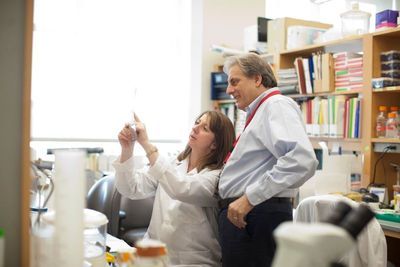Transplant Center

Many patients have transplant surgery at a center near their home. It is convenient, and the person is in familiar surroundings. However, you are not required by UNOS to receive care at any particular center. Your specialist may recommend a transplant center for you. They may urge you to have your surgery in a center that is familiar and/or where the specialist works. However, remember, it is your surgery, your health, and this is your decision. Know that you can research any facility you are considering. You may list at more than one center, if you are able to afford the process and can handle the numerous evaluations. Some people are listed at more than one center. However, keep in mind that some health insurance policies will only cover care at certain centers.
The UNOS site, has lots of helpful information.
Researching Centers
If you are considering a specific transplant center, you will want to find out about:
- That center’s recent one-year survival rate for liver transplants (last two years)
- The average MELD score upon transplant
- The experience level of the surgeons
- The process they have in place for post-surgery and follow-up care
- The average length of stay after surgery, and any other questions that you have
Note: Writing down questions as you think of them is often helpful.
Support: If you decide to choose a center that is distant, you will need to look into the hospital’s support for waiting patients. Often, they can provide reduced-rate arrangements for hotels, short-term apartment lists, and so on. The hospital's website and the liver team social worker are good resources for that information.
Distance: If the center you are considering is not near your home, you must inquire about the policy regarding the distance within which you’ll need to stay while awaiting a transplant. Generally, at a lower MELD/PELD, you will not need to be particularly close to the transplant center. However, as you get nearer to a transplantable MELD/PELD score, you may have to make arrangements to stay closer.
Listing at Several Centers: If you decide to list at more than one center, you need to be aware that a second listing in the same area may not be advantageous, because the waiting list is combined with nearby centers. All transplant hospitals in the area merge their patient lists for allocation of organs. If you plan to list at another center, you may want to go into a different UNOS area or region where you would be on a different waiting list, served by a different organ procurement organization. Some areas of the country have more organs available, because these areas have a higher rate of organ donations. The UNOS website has a wealth of information that can help you decide whether to list at more than one center. The UNOS site is available here.
OPO: Click here to research Organ Procurement Organizations (OPO) by state and/or street address. Generally, all transplant centers in a specific city are served by the same OPO. Some very large cities may be served by more than one OPO.
Additional Considerations
Some other considerations include:
- Whether your insurance coverage accepts the centers at which you are looking
- How you would manage being away from home
- Transportation to the center
- Caregiver and family support for out of town locations
- Financial impact, and more
Follow-up Care: You will need to ask about post-surgery follow-up care: specifically, if you can transfer your care to a center near to your home, or if you want to travel for follow-up to the center that performed the surgery.
Out-of-Country: Going out of the country for a transplant is generally not advised. “Medical tourism” areas have different standards for transplant, and, patients may be at higher risk for poor outcomes in these situations. This is an important topic to discuss with your doctor(s) and transplant team.
Complete your profile and join PSC Partners Seeking a Cure in advancing PSC research towards a cure. Find information about clinical trials.




